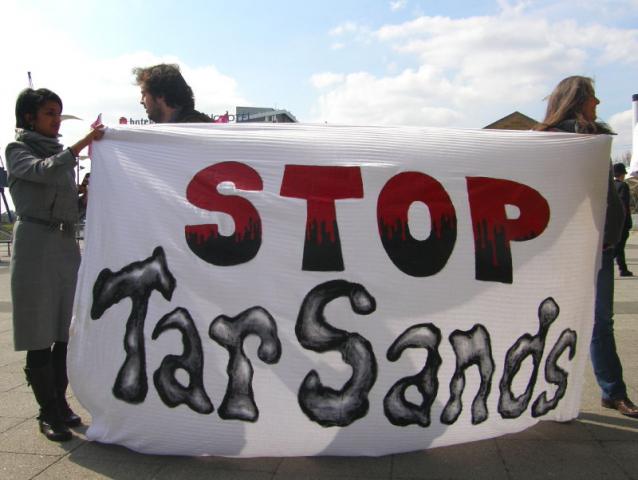The State Department just released their Final Environmental Impact Statement (EIS) for the proposed Keystone XL pipeline. The 27-page document does not flag any significant environmental concerns. The EIS suggests that construction of the pipeline as proposed is preferable to alternatives considered, including: not building the pipeline, rerouting the proposed location, and transporting the oil through alternative means.
In typical agency beurocratic-speak, the main alternatives are described as such:
- No Action Alternative – potential scenarios that could occur if the proposed Project is not built and operated;
- System Alternatives − the use of other pipeline systems or other methods of providing Canadian crude oil to the Cushing tank farm and the Gulf Coast market;
- Major Route Alternatives − other potential pipeline routes for transporting heavy crude oil from the U.S./Canada border to Cushing, Oklahoma and the Gulf Coast market.
None of the alternatives were considered by the State Department to be preferable to proposed construction.
The Department will have to conduct another assessment of whether the pipeline is in the “national interest”, as well as a 90-day public comment period, but the public hearings scheduled for the fall are unlikely to change the positive decision. Thus today’s State Department report is widely considered the final say on approval. The only recourse now is President Obama’s power to overrule that approval. People are now watching Obama’s biggest test on climate and the environment before 2012 with bated breath.
- The “Keystone XL Worst-Case Spills Study” found that rather than 11 significant spills, a more realistic assessment is 91 significant spills over the pipeline’s operational lifetime.
- Stansbury alleges that TransCanada ignored historical data that represents 23 percent of historical pipeline spills, and made the assumption that its pipeline would only half as many spills as other pipelines.
- According to Stansbury’s report, TransCanada’s calculations use a 19-minute shut down time, but the company assumes that it will only take 11 minutes and 30 seconds to shut down the pipeline. Stansbury shows that a “response to a leak at a river crossing could conservatively take more than ten times longer” than TransCanada estimates.
These inadequate estimations mean that worst-case spill volumes will likely be significantly larger than those estimated by TransCanada.
Finally, in the Supplemental Draft EIS (not the report issued today, which we are still reviewing), Keystone XL is expected to leak due to flooding and washout only once every 87,800 years. After July’s ExxonMobil Yellowstone spill, it seems outrageous to claim that flooding and washout will claim a pipeline once every 90,000 years. With climate change, there will be increased rainfall and extreme weather, and current models of erosion prediction will be inaccurate.
TransCanada’s track record with Keystone I is poor, and it seems foolhardy to trust them with the drinking water for two million people, the health of hundreds of communities, and for numerous ecologically vulnerable regions.
Subscribe to our newsletter
Stay up to date with DeSmog news and alerts






